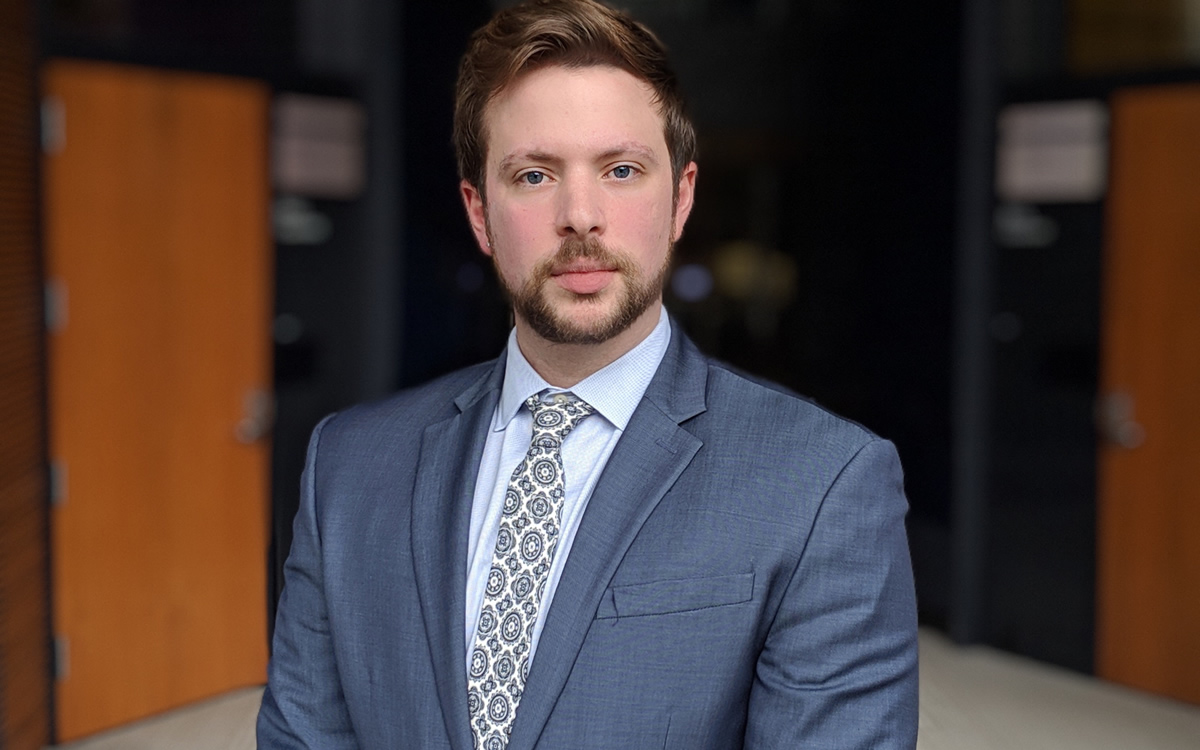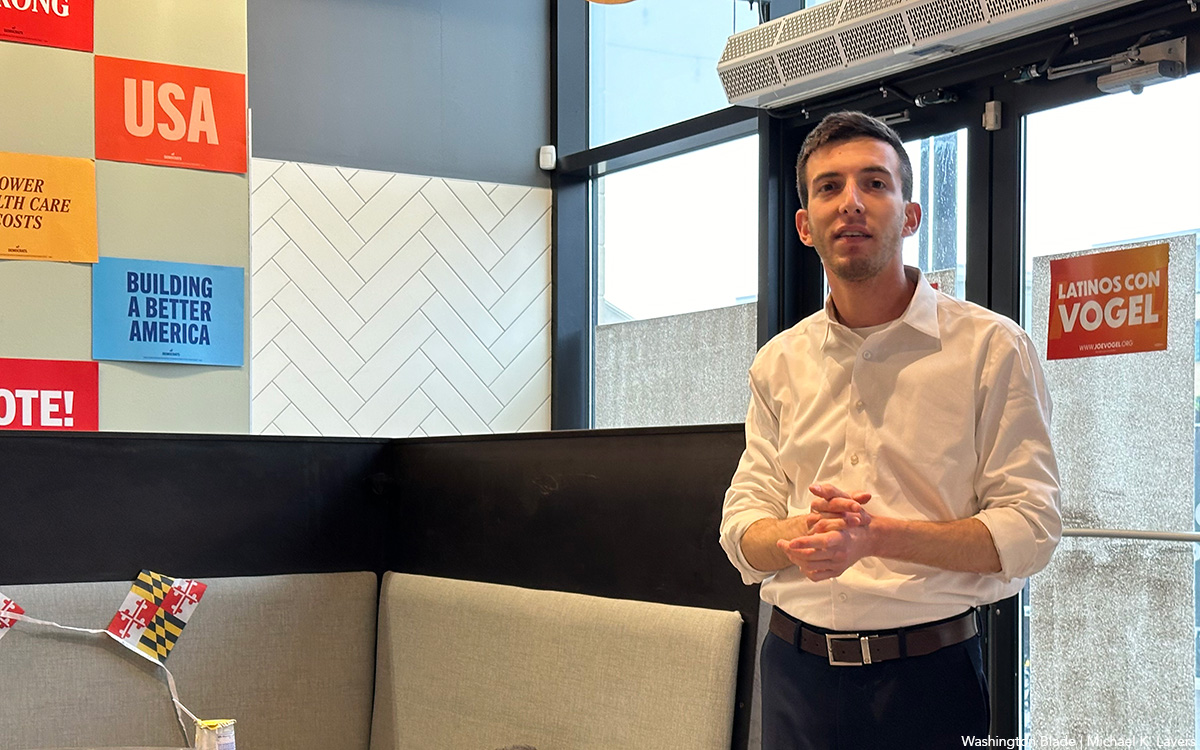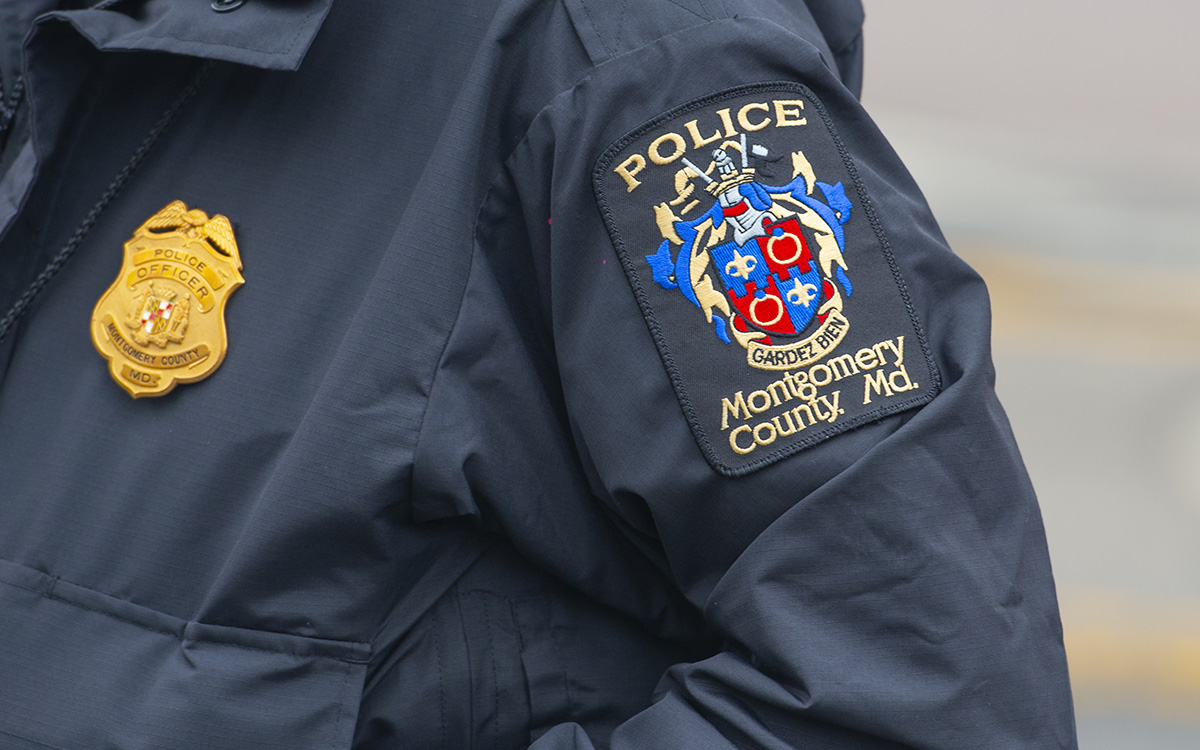Maryland
Bill to repeal Maryland sodomy law dies in committee
‘Perverted Sexual Practice’ measure remains on books for at least one more year

A bill calling for repeal of a Maryland law that classifies oral sex between consenting adults as a crime and that was used to arrest four gay men in an adult video store in May 2021 was approved earlier this year by the state’s House of Delegates but died in a committee of the state Senate.
In a development that disappointed LGBTQ activists and the bill’s sponsors, the Senate Judicial Proceedings Committee failed to act on the bill before the Maryland General Assembly adjourned for the year on April 11.
Sen. William ‘Will’ Smith (D-Montgomery County), who chairs the Democratic controlled committee, said the committee was faced with a large number of bills in a legislative session that lasts only 90 days, and it wasn’t able to get to Senate Bill 22, which called for repealing the state’s Unnatural or Perverted Sexual Practices Act.
“It’s a top priority for me,” Smith told the Washington Blade. “We will get to it next year. It’s just that we ran out of time,” he said. “It wasn’t a lack of willingness. So, I’m working with Sen. Lam to make sure it’s at the top of the agenda next year.”
Smith was referring to State Sen. Clarence Lam (D-Baltimore & Howard County), who introduced the bill in the Senate in January.
Smith said among the other bills that his committee worked on and approved, and that passed both houses of the General Assembly, was the Inclusive Schools Act, which prohibits state funded schools, including private religious schools receiving state funding, from discriminating against students based on their sexual orientation, gender identity, race, nationality, or disability.
Lam told the Blade he is disappointed his bill seeking to repeal the state’s remaining sodomy law did not make it out of the Senate committee. He said he’s hopeful the bill will pass in the General Assembly’s 2023 legislative session.
“My understanding is that it’s not because of policy concerns from the committee leadership,” Lam said in referring to the reason the Senate committee didn’t act on the bill. “I think the fact was they ran out of time to address this issue, which is frustrating because I think this is an important issue,” he said. “And I understand, and I recognize that they have a lot of important issues they’re working with, much of which was very substantive and weighty.”
The Judicial Proceedings Committee’s inability to act on the bill came after the House of Delegates Judiciary Committee approved the measure and sent it to the full House of Delegates, which passed it by a vote of 121 to 10, with one member not voting and nine members absent, according to the bill tracking site LegiScan.
The committee’s failure to act on the bill this year also came two years after it approved a separate bill in 2020 calling for repealing the section of Maryland’s two-part sodomy law that outlawed anal sex. As first introduced, the 2020 bill called for repealing both provisions of the archaic law – the so-called “Sodomy” provision banning anal sex and the Unnatural or Perverted Sexual Practice provision banning oral sex.
But at the request of two Republican members of the committee, Sens. Michael Hough (R-Frederick and Carroll County) and Bob Cassilly (R-Harford County), the committee’s Democratic members and the other two GOP members agreed to drop from the bill the section calling for repeal of the Unnatural or Perverted Sexual Practice provision. The committee consists of seven Democrats and four Republicans.
The full General Assembly then passed the amended bill that repealed only the “sodomy” section of the law during the General Assembly’s 2020 session. The House of Delegates, which initially passed the full two-part bill, agreed to the Senate’s changes. House of Delegates member David Moon (D-Montgomery County), who introduced the 2020 bill in the House, said he and his House colleagues reluctantly agreed to the Senate version because the only alternative was to have no bill at all.
Moon introduced this year’s version of the repeal bill in the House and helped guide it to passage by the full House before the bill died in the Senate committee.
The section of the law that this year’s bill would have repealed and that now remains on the books, states, “A person may not take the sexual organ of another or of an animal in the person’s mouth; place the person’s sexual organ in the mouth of another or of an animal; or commit another unnatural or perverted sexual practice with another or with an animal.”
Supporters of the repeal bill point out that other existing Maryland laws outlaw abusive treatment of animals as well as non-consensual sexual acts or sexual acts between adults and minors. The supporters, including the Office of the Maryland Attorney General, said repealing the Unnatural or Perverted Sexual Practice statute would not prevent the full prosecution of anyone engaging in abuse of animals, rape, or sex with minors.
Many LGBTQ activists were unaware that the repeal bill that passed in 2020 did not include the part of the statute outlawing oral sex. Many did not realize that change had been made to the 2020 repeal bill until the Harford County, Md., Sheriff’s Department conducted a May 20, 2021, raid on the adult Bush River Books & Video store in the town of Abingdon, which is located 25 miles north of Baltimore.
The Sheriff’s Department said one of its deputies, who entered the store undercover in plainclothes, observed what officials said was illegal activity by nine men, who were arrested during the raid. Most were charged with indecent exposure. Four were arrested on the charge of Unnatural or Perverted Sexual Practice.
One of the arrested men told the Blade he and most of the others arrested were caught engaging in sex inside locked video booths that the Sheriff’s deputies opened with keys they obtained from a store employee.
Court records show that the Unnatural or Perverted Sexual Practice charges appear to have been dropped against the four men who were faced with that charge. In response to a request from the Blade, Harford County Deputy State’s Attorney Gavin Patashnick, one of the prosecutors in the case, confirmed that “all perverted practice charges were dropped with no preconditions.”
But the attorneys — and an official with the national LGBTQ litigation group Lambda Legal — said the fact that law enforcement officials would seek to invoke the Unnatural or Perverted Sexual Practice statute was an unfair practice that subjected their clients to an unnecessary burden of an arrest.
Jeremy LaMaster, executive director of the Maryland LGBTQ advocacy group FreeState Justice, said the group engaged in lobbying efforts in support of this year’s repeal bill. He said in the final week of the General Assembly’s legislative session the group urged Smith and the Judicial Proceedings Committee’s vice chair, Sen. Jeff Waldstreicher (D-Montgomery County), to bring the bill up for a committee vote.
“We were advised a few times during the week by both Sens. Waldstreicher and Smith that it would be added to the committee voting list,” LaMaster said in a statement. “We monitored it daily and never saw it appear on a voting list.”
Gay Democratic activist Jeffrey Slavin, who serves as mayor of the Maryland town of Somerset near D.C., said he, too, was disappointed that the repeal bill failed to pass this year.
“There’s really no excuse,” he said. “It’s a no brainer. And there are people who are being harassed needlessly because that law is still on the books. It’s from the last century. It’s ridiculous,” Slavin said, adding, “It’s a shame that this issue isn’t being raised on the campaign trail.”
Montgomery County LGBTQ activist Michael Tardif said he was skeptical about “excuses” of a heavy workload of the Judicial Proceedings Committee and a reported lack of sufficient time to get to the repeal bill.
“This is non-controversial legislation to repeal a heinous, outdated law that is still being used to ensnare LGBTQ people for private, consensual conduct,” he said. “The House Judiciary Committee has the same workload as the Senate Judicial Proceedings Committee and managed to pass the House bill by Feb. 17,” Tardif told the Blade. “’Not enough time’ does not adequately explain why Senate Bill 22 did not even receive a vote in Judicial Proceedings,” he said, referring to the bill number for the repeal measure in question.
Smith told the Blade that because the state Senate has fewer members than the House of Delegates, the Senate committees have fewer members than the House to work on important legislation.
“The Maryland State Senate has four committees,” he said. “The House of Delegates has six. That means each committee in the Senate has 25 percent more jurisdiction over subject matters than each House committee.” He said each House committee has 21 members while each Senate committee has 11 members.
“And although we work feverishly there is no way we can keep up with the pace of the House because that’s by design” of the legislature, he said. “And every subject we go with is extremely serious, and so is this one,” said Smith, referring to the sodomy repeal bill that didn’t make it through his committee this year.
“And as I’ve told you and others, we will get to this bill next year, come hell or high water,” he said.
Maryland
Health care for Marylanders with HIV is facing huge cuts this summer
Providers poised to lose three-quarters of funding

BY MEREDITH COHN | By the end of June, health care providers in Maryland will lose nearly three-quarters of the funding they use to find and treat thousands of people with HIV.
Advocates and providers say they had been warned there would be less money by the Maryland Department of Health, but were stunned at the size of the drop — from about $17.9 million this fiscal year to $5.3 million the next. The deep cuts are less than three months away.
The rest of this article can be read on the Baltimore Banner’s website.

GAITHERSBURG, Md. — Maryland state Del. Joe Vogel (D-Montgomery County) on Friday held a “Big Gay Canvass Kickoff” event at his congressional campaign’s headquarters.
LGBTQ+ Victory Fund Vice President of Outreach and Engagement Marty Rouse and John Klenert, a member of the DC Vote and Victory Fund Campaign board of directors, are among those who participated alongside members of Equality PAC. Vogel spoke before Rouse, Klenert and others canvassed for votes in the area.
“Joe brings a fresh new perspective to politics,” said Gabri Kurtzer-Ellenbogen, deputy field director for Vogel’s campaign.
Vogel, 27, is among the Democrats running for Congressman David Trone’s seat.
Trone last May announced his bid to succeed retiring U.S. Sen. Ben Cardin (D-Md.) in the U.S. Senate.
The Democratic primary is on May 14. Vogel would be the first Latino, the first gay man and first Gen Zer elected to Congress from Maryland if he were to win in November.
“We need a new generation of leadership with new perspectives, new ideas, and the courage to actually deliver for our communities if we want things to get better in this country,” Vogel told the Washington Blade last month during an interview in D.C.
Maryland
Montgomery County police chief discusses arrest of trans student charged with planned school shooting
County executive tells news conference student’s trans identity is irrelevant to criminal charge

Montgomery County, Md., Police Chief Marcus Jones joined other county and law enforcement officials at a news conference on Friday, April 19, to provide details of the police investigation and arrest of an 18-year-old high school student charged two days earlier with threats of mass violence based on information that he allegedly planed a mass shooting at the high school and elementary school he attended in Rockville, Md.
In charging documents and in a press release issued on April 18, Montgomery County Police identified the arrested student as “Andrea Ye, of Rockville, whose preferred name is Alex Ye.”
One of the charging documents states that a friend of Ye, who police say came forward as a witness who played a crucial role in alerting authorities to Ye’s threats of a school shooting, noted that Ye told the witness that Ye identified as the transgender student he wrote about as a character in a 129-page manifesto outlining plans for a school shooting. Police have said Ye told them the manifesto was a fictional story he planned to publish.
At the news conference on Friday, Police Chief Jones and other law enforcement officials, including an FBI official and Montgomery County Executive Marc Elrich, referred to the student as Alex Ye and Mr. Ye. None of the officials raised the issue of whether Ye identified as a transgender man, seven though one of the police documents identifies Ye as a “biological female.”
County Executive Elrich appeared to express the views of the public officials at the news conference when one of the media reporters, during a question-and-answer period, asked Elrich why he and the others who spoke at the news conferment failed to “admit that this individual was transgender.”
“Because it’s not a lead,” Elrich replied, asking if the press and law enforcement authorities should disclose that someone arrested for murder is “a white Christian male who’s heterosexual.” Elrich stated, “No, you don’t – You never publish somebody’s sexual orientation when we talk about this. Why you are focusing on this being a transgender is beyond me. It’s not a news story. It is not a crime to be transgender.”
The reporter attempted to respond but was cut off by the press conference moderator, who called on someone else to ask the next question.
In his remarks at the press conference Chief Jones praised the so far unidentified witness who was the first to alert authorities about Ye’s manifesto appearing to make threats of a mass school shooting.
“Now, this is a situation that highlights the critical importance of vigilance and community involvement in preventing potential tragedies,” Jones said. “I commend the collaborative efforts of the Montgomery County Police Department, the Federal Bureau of Investigation, the Rockville City Police Department, and the Montgomery County Public Schools, as well as Montgomery County Health and Human Services,” he told the gathering.
“Thanks to their swift action and cooperation a potentially catastrophic event was prevented,” Jones said.
Jones pointed out that during the current school year, police have received reports of 140 threats to the public schools in Montgomery County. He said after a thorough investigation, none of them rose to the level where an arrest was made. Instead, police and school officials took steps to arrange for the student making the threats and their parents to take remedial action, including providing mental health services.
“But this case is different,” Jones said. “This case is entirely different that takes it to a different level. It was a concerned witness who brought this matter to light by rereporting the suspect’s manifesto to the authorities. This underscores the value of community engagement and the ‘see something say something’ approach,” he said.
Jones mentioned at the press conference that Ye was being held without bond since the time of his arrest but was scheduled to appear in court for a bond hearing on Friday shortly after the press conference took place to determine whether he should be released while awaiting trial or continue to be held.
In his manifesto obtained by police, Ye writes about committing a school shooting, and strategizes how to carry out the act. Ye also contemplates targeting an elementary school and says that he wants to be famous.
In charging documents reported on by WJLA 7 and WBAL 11, the 129-page document, which Ye has referred to as a book of fiction, included writings that said, in part:
“I want to shoot up a school. I’ve been preparing for months. The gun is an AR-15. This gun is going to change lives tomorrow … As I walk through the hallways, I cherry pick the classrooms that are the easiest targets. I need to figure out how to sneak the gun in. I have contemplated making bombs. The instructions to make them are surprisingly available online. I have also considered shooting up my former elementary school because little kids make easier targets. High school’s the best target; I’m the most familiar with the layout. I pace around my room like an evil mastermind. I’ve put so much effort into this. My ultimate goal would be to set the world record for the most amount of kills in a shooting. If I have time, I’ll try to decapitate my victims with a knife to turn the injuries into deaths.”

















